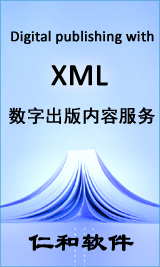Wenbin XUE
,
Chao WANG
,
Zhiwei DENG
,
Ruyi CHEN
,
Tonghe ZHANG
材料科学技术(英文)
Dense ceramic oxide coatings of about 50 μm may be prepared on Ti-6Al-4V alloy surface by alternating-current microarc oxidation in aluminate and silicate solutions, respectively. Their phase constituent and microstructure were characterized using X-ray diffraction (XRD) and scanning electron microscopy (SEM). The results show that the electrolytic ions have incorporated into the interior of the coatings. The coating formed in aluminate solution is composed of the rutile TiO2 and TiAl2O5 phases rather than the rutile, anatase and amorphous SiO2 phases for the coating formed in silicate solution. However, TiAl¬2O5 content in the outer layer of the two coatings is much higher than in the inner layer. It is suggested that all these oxides may result from a rapid solidification of the molten coating in the microarc discharge zone.
关键词:
Microarc oxidation
,
null
,
null
Jing TIAN
,
Xiang XUE
,
Yuebing ZHANG
,
Yalong GAO
,
Luzhi LIU
,
Qin SUN
,
Shiyou YUAN
材料科学技术(英文)
By adopting the solid modeling software SoldEdge and the enmeshment software SRIFCast as the pre-processing platform, a Ni based alloy turbine blade was three-dimensionally modeled and automatically enmeshed. A software code for numerical simulation of fluid flow and heat transfer was developed. The Xue criterion and Niyama criterion were used to predict the position of the shrinkage defects occurring in the solidification processes of the turbine blade. The results showed that both Xue and Niyama criteria could precisely predict the shrinkage defects in the Ni based alloy turbine blade. This indicates that numerical simulation is a significant tool in improving casting quality.
关键词:
Journal of Physics and Chemistry of Solids
The layered ternary ceramics Ti3SiC2 and Ti3AlC2 are isostructural and can form Ti3Si1-xAlxC2 solid solutions combining the advanced properties of both compounds [H.B. Zhang, Y.C. Zhou, Y.W. Bao, M.S. Li, Improving the oxidation resistance of Ti3SiC2 by forming a Ti3Si0.90Al0.1C2 solid solution, Acta Mater. 52 (2004) 3631-3637; E.D. Wu, J.Y. Wang, H.B. Zhang, Y.C. Zhou, K. Sun, Y.J. Xue, Neutron diffraction studies of Ti3Si0.9Al0.1C2 compound, Mater. Lett. 59 (2005) 2715-2719; J.Y. Wang, Y.C. Zhou, First-principles study of equilibrium properties and electronic structure of Ti3Si0.75Al0.25C2 solid solution, J. Phys.: Condens. Matter 15 (2003) 5959-5968; Y.C. Zhou, J.X. Chen, J.Y. Wang, Strengthening of Ti3AlC2 by incorporation of Si to form Ti3Al1-xSixC2 solid solutions, Acta. Mater. 54 (2006) 1317-1322]. In the present work, the solid solutions of Ti3Si1-xAlxC2 (x = 0, 0.25, 0.33, 0.5, 0.67, 0.75, 1) are investigated by first-principle calculations based on pseudo-potential plan-wave method within the density functional theory framework. The results show that as Al content increases in the solid solution, all the bonds have weakened to certain extents, which lead to an unstable structure both energetically and geometrically. The calculated results are compared and discussed with the reported data for the Ti3Si1-xAlxC2 solid solutions. (c) 2007 Elsevier Ltd. All rights reserved.
关键词:
ceramics;ab initio calculations;electronic structure;electrical;conductivity;oxidation behavior;mechanical-properties;ti3sic2;temperature;ti3alc2;air;si






